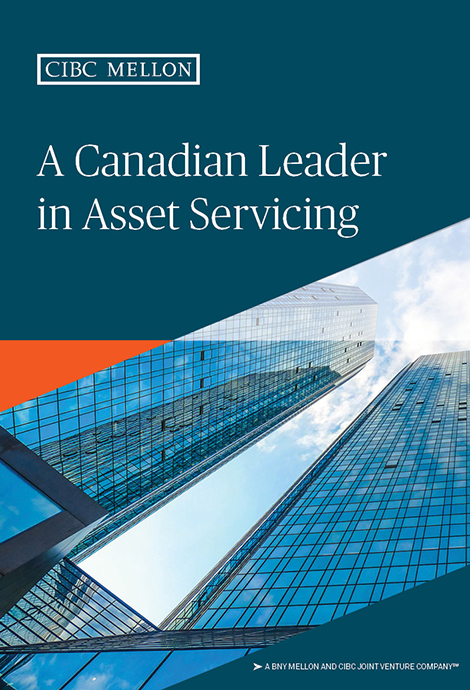As a Canadian asset servicing leader, we have spent a quarter-century establishing a strong foundation. From an array of challenges up to and including today’s global pandemic that has shaken the world; CIBC Mellon has remained resilient.
Over the years, CIBC Mellon also navigated a number of potential disruptions – for example, the 2010 G20 Summit in Toronto rendered CIBC Mellon’s headquarters inaccessible, major winter storms have disrupted roads and transit and prevented employees from reaching offices in cities across Canada, while 2017 a flood likewise rendered CIBC Mellon’s largest office unusable for a full week. These challenging events — together with regular annual drills, tabletop exercises and a robust approach to business continuity — all helped prepare CIBC Mellon and its employees for rapid business continuity response.
2020 was a year of unprecedented challenge and change, with market and industry stakeholders forced to stay connected even while remaining apart amid the COVID-19 pandemic.
As Canada and the rest of the world work through and recover from this pandemic and its economic impact, we continue to work to support clients. We know how strongly our clients value resiliency and strong governance. For many years we have invested in preparation, robust systems and carefully documented our plans. We have also regularly engaged our people — from senior management exercises to all-employee drills.
We have seen the value and importance of our preparation play out across events such as extreme weather events or social disruptions impacting our offices. While we know it is not possible to account for every impact, it became clear early in the pandemic how important it was for our response to be rapid yet thoughtful and careful.
Now in 2021, CIBC Mellon is celebrating its 25th anniversary of delivering asset servicing in the Canadian marketplace. Founded in 1996, CIBC Mellon is 50-50 jointly owned by The Bank of New York Mellon (BNY Mellon) and Canadian Imperial Bank of Commerce (CIBC). For a quarter century, CIBC Mellon has continued to recognise the importance of our business to the Canadian marketplace, and is committed to doing business at the highest standards.
Can you talk about CIBC Mellon’s key achievements during the pandemic?
One critical aspect was both a key achievement and a major success factor: staying connected and keeping communications channels open even as we were physically separated. The company’s teams actively engaged with clients and employees, keeping them informed — for example, frequent employee, management and leadership meetings, detailed and regular client updates across multiple formats, and regular employee calls and messaging.
CIBC Mellon recognises the importance of ongoing and regular feedback. Rather than a single point in time, we have been capturing employee feedback as we move through various planning phases, allowing employees to provide their input on an ongoing basis via MyIdeas, our internal ideation platform, and across multiple surveys. Additional communication strategies utilised at CIBC Mellon include weekly calls within various departments and organisation-wide employee calls where our senior executives offer their insights on various topics, such as industry trends and their impact on our business. For urgent communications, particularly outside business hours, we employ our enterprise critical communications platform, enabling two-way communication via automated delivery of email, recorded phone messages and text messages for employees to confirm receipt or affirm their status among several available options.
As we transform to future ways of working, we are implementing technology and collaboration tools. We are proud to maintain and strengthen our positive employee culture and engagement.
In terms of setting up a strategic framework, how did you navigate to future ways of work and sustain employee engagement?
CIBC Mellon operates within flexible working models and spaces to enable organisational resiliency and enhance employee satisfaction and engagement. We recognised the need for a connected and engaged work environment, bringing together employees and clients and leveraging the depth and breadth of all available collaborative capabilities. Employees are at the heart of great outcomes, so the team also recognises the need to support an enhanced employee experience through work/life flexibility.
In a remote environment, employees have been able to maintain their productivity levels and meet or, in some areas, exceed their daily deliverable benchmarks.
According to an employee engagement survey completed in February 2021, CIBC Mellon employees are not only sustaining strong operational performance over the long term, but overall sustainable employee engagement has also risen.
CIBC Mellon’s sustainable engagement metric is 95 per cent, on par with our status in October 2021, and 9 per cent ahead of industry norms.
98 per cent of employees feel they have the equipment, tools and resources needed to perform their job effectively. This is 18 per cent above industry norms, and up 1 per cent since October 2020 95 per cent report that there are no substantial obstacles to completing their job well.This is up 1 per cent since October, and 12 per cent above industry norms.
Finally, 92 per cent of CIBC Mellon employees recommend the company as a good place to work — consistent with October 2020 and 7 per cent above industry benchmarks.
Employees have noted that the ability to work from home has led to lower stress levels and more time to engage with their family, developing a stronger work-life balance.
“Working from home has led to reduced stress and more time to engage with my family. I’m able to help my kids with their homework every day and share every meal with them.”
Remaining connected encourages a sense of community. It enhances greater connections, and it gives permission for others to bring their whole selves to work. By demonstrating gratitude and empathy in the current situations, encouraging positivity and giving teams permission to do what’s right in their own circumstances—whether that’s homeschooling, taking time off to do what’s essential with their families, or even caring for relatives, or pets, if they’re living alone. This is key to supporting employee resilience and keeping teams engaged.
“My teams perform tasks that can only be done late in the evening. Working from the office during this portion of the day can be challenging due to meal times, reduced transit schedules, fatigue, and so on. I find these challenges much easier to manage from home.”
Teams whose tasks are done later in the day are finding that previous challenges, such as transit and commuting schedules, are more manageable in a work from home environment. Internal survey results show the vast majority of CIBC Mellon of employees would prefer to continue working from home at least some of the time post-pandemic, and that overall sustainable engagement is significantly exceeding industry pandemic period benchmarks.
“I find myself much more productive and effective working from home. I have more time for projects, and I feel happier with my work-life balance.
“Not only do I feel safer and highly appreciate the ability to work from home during the pandemic, I now much prefer it - for greater work-life balance, flexibility and autonomy. It also seems more efficient.”
Incorporating and engaging employees: CIBC Mellon’s Future Ways of Work Employee Advisory Committee
At CIBC Mellon, we believe that great people help set our company apart. Our talented employees are critical to achieving our vision: we know that investing in recruiting, retaining, motivating and engaging the brightest in the industry helps position our company, clients and stakeholders for success.
It’s with the effort and contribution of our team that CIBC Mellon strives to be Canada’s leader in asset servicing. CIBC Mellon’s exceptional employee experience is defined by its culture. Driven by our vision and values, employees are empowered and given the tools and resources to make a meaningful impact, both in and outside of the workplace.
As we transform and adapt to Future Ways of Work, we recognise that the participation, engagement and shared ownership in collaboration with a diverse array of employees – across departments, geographies, and seniority levels — will meaningfully enhance our ability to succeed.
To this end, CIBC Mellon formed a Future Ways of Work (FWoW) employee advisory committee to better engage and incorporate employee perspectives into FWoW strategy and planning.
As the world adjusts to a new reality in light of the aftermath of COVID-19, organisations are considering an array of future work strategies to protect the safety and wellbeing of their employees. Re-opening scenarios may look different for everyone, however, they require a thoughtful and deliberate approach — as well as feedback from relevant stakeholders. With over 50 engaged volunteers, CIBC Mellon’s FWoW committee is doing exactly this; capturing the unique perspectives from employees across departments and career stages.
The road to recovery and return
At CIBC Mellon, we are committed to continuous improvement. In collaboration with our clients and working across our global enterprise, we seek to enhance further accuracy, operational efficiency and leverage ideas to build business solutions in collaboration with our clients. Undertaking innovation amid a global crisis is no simple feat; it requires careful strategic planning and a deep understanding of an organisations’ future state requirements.
Many gaps in what a partially remote environment will look like remain — what will the data, employee experience and client engagement opportunities look like in a world where we are sometimes at home, sometimes at the office, and where various companies have diverging approaches and expectations?
Re-opening scenarios across all organisations require a thoughtful, deliberate approach — as well as feedback from relevant stakeholders to help mitigate the threat of further outbreaks.
Organisations may need to adapt their current strategies against the backdrop of their business needs and appropriate public health directions and occupational health and safety considerations in the absence of a one-size-fits-all approach.



